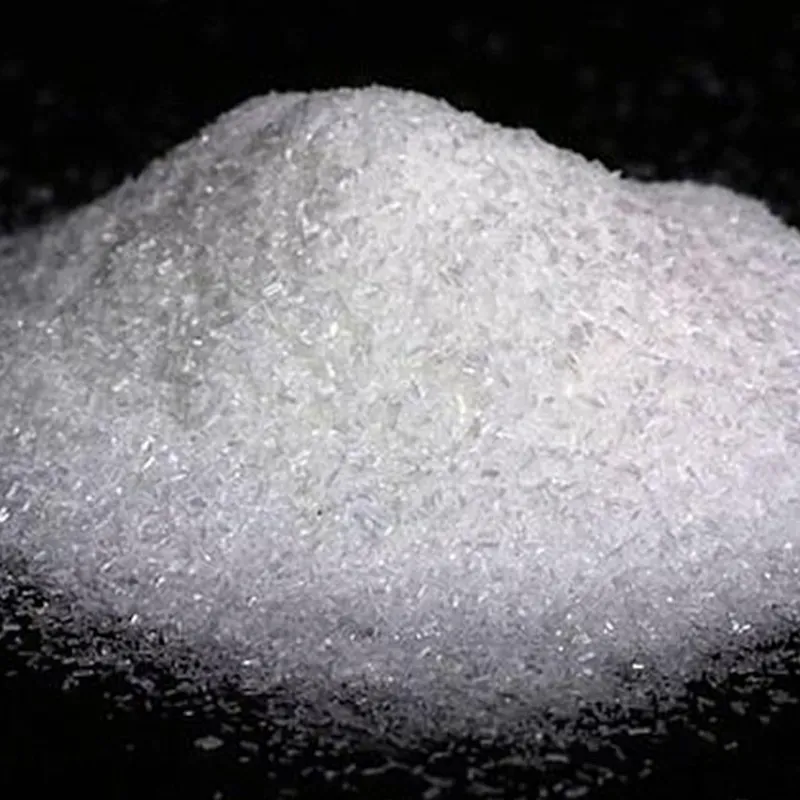
فبراير . 18, 2025 02:04
Back to list
Aspartame
The controversy surrounding aspartame, a widely used artificial sweetener, has sparked a significant debate about its safety. As consumers become more health-conscious, understanding the potential dangers of aspartame is crucial. Aspartame, discovered in 1965, is around 200 times sweeter than sucrose, making it a popular choice for diet sodas, sugar-free gum, and low-calorie desserts. However, its usage has been scrutinized, with ongoing discussions about its health implications.
Empirical studies have provided insights into the safety of aspartame. A comprehensive review published in 2007 analyzed multiple studies and found no consistent evidence linking aspartame consumption to cancer or tumors in humans. Furthermore, research has shown that it does not affect blood sugar or insulin levels, showcasing its potential benefits for individuals managing diabetes. While scientific evidence supports the safety of aspartame in moderate amounts, the increase in consumer advocacy for natural products shifts perspectives. As part of this trend, experts advocate for moderation and transparency. Companies have responded to consumer demand by formulating products with alternative sweeteners, such as stevia or monk fruit extract, which are perceived as more natural. These alternatives provide fewer concerns about metabolic byproducts, appealing to consumers seeking naturally derived products. Consumer experiences add another dimension to the aspartame safety narrative. People who report adverse reactions—such as headaches, dizziness, or mood changes—urge further exploration into the psychological impact of aspartame consumption. These anecdotal reports, while not scientifically confirmed, underscore the complexities of dietary sensitivities. Ensuring that consumers have access to diverse product options allows them to make informed choices based on personal health experiences. In conclusion, while the scientific consensus deems aspartame safe when consumed within acceptable daily intake limits, ongoing research and transparent consumer information remain vital. Experts emphasize the importance of personalized nutrition, urging consumers to consider individual health conditions, such as PKU, and personal experience when choosing sweeteners. As the market adapts to health trends, the responsibility lies in maintaining rigorous safety standards, offering clear product labeling, and supporting research that continues to scrutinize and validate the safety of artificial sweeteners in our diets.


Empirical studies have provided insights into the safety of aspartame. A comprehensive review published in 2007 analyzed multiple studies and found no consistent evidence linking aspartame consumption to cancer or tumors in humans. Furthermore, research has shown that it does not affect blood sugar or insulin levels, showcasing its potential benefits for individuals managing diabetes. While scientific evidence supports the safety of aspartame in moderate amounts, the increase in consumer advocacy for natural products shifts perspectives. As part of this trend, experts advocate for moderation and transparency. Companies have responded to consumer demand by formulating products with alternative sweeteners, such as stevia or monk fruit extract, which are perceived as more natural. These alternatives provide fewer concerns about metabolic byproducts, appealing to consumers seeking naturally derived products. Consumer experiences add another dimension to the aspartame safety narrative. People who report adverse reactions—such as headaches, dizziness, or mood changes—urge further exploration into the psychological impact of aspartame consumption. These anecdotal reports, while not scientifically confirmed, underscore the complexities of dietary sensitivities. Ensuring that consumers have access to diverse product options allows them to make informed choices based on personal health experiences. In conclusion, while the scientific consensus deems aspartame safe when consumed within acceptable daily intake limits, ongoing research and transparent consumer information remain vital. Experts emphasize the importance of personalized nutrition, urging consumers to consider individual health conditions, such as PKU, and personal experience when choosing sweeteners. As the market adapts to health trends, the responsibility lies in maintaining rigorous safety standards, offering clear product labeling, and supporting research that continues to scrutinize and validate the safety of artificial sweeteners in our diets.
Next:
Latest news
-
Sodium Dichloroisocyanurate Safety Handling ProtocolsNewsJul.29,2025
-
Mining Chemicals for Copper Extraction Processes GuideNewsJul.29,2025
-
Fertilizer for Sale Shipping and Storage TipsNewsJul.29,2025
-
Dimethyl Disulfide as Sulfurizing AgentNewsJul.29,2025
-
Benzotriazole Safety Data Handling and Storage GuidelinesNewsJul.29,2025
-
Ammonium Bicarbonate Safety Handling Storage GuidelinesNewsJul.29,2025
-
The Transformative Role Of Trichloroisocyanuric Acid in Water TreatmentNewsJul.23,2025
HOT PRODUCTS
Hebei Tenger Chemical Technology Co., Ltd. focuses on the chemical industry and is committed to the export service of chemical raw materials.
-

view more DiethanolisopropanolamineIn the ever-growing field of chemical solutions, diethanolisopropanolamine (DEIPA) stands out as a versatile and important compound. Due to its unique chemical structure and properties, DEIPA is of interest to various industries including construction, personal care, and agriculture. -

view more TriisopropanolamineTriisopropanolamine (TIPA) alkanol amine substance, is a kind of alcohol amine compound with amino and alcohol hydroxyl, and because of its molecules contains both amino and hydroxyl. -

view more Tetramethyl Thiuram DisulfideTetramethyl thiuram disulfide, also known as TMTD, is a white to light-yellow powder with a distinct sulfur-like odor. It is soluble in organic solvents such as benzene, acetone, and ethyl acetate, making it highly versatile for use in different formulations. TMTD is known for its excellent vulcanization acceleration properties, which makes it a key ingredient in the production of rubber products. Additionally, it acts as an effective fungicide and bactericide, making it valuable in agricultural applications. Its high purity and stability ensure consistent performance, making it a preferred choice for manufacturers across various industries.











